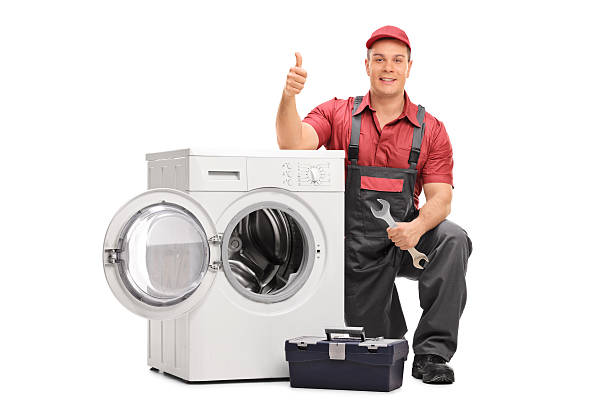In the bustling neighborhood of Jumeirah Village Circle (JVC), a functioning washing machine repair in jvc is more than just a convenience—it’s a necessity. Whether you’re tackling a mountain of laundry for your family or keeping your clothes clean in the midst of Dubai’s dusty climate, a reliable washer is essential. But what happens when your trusty appliance starts acting up? That’s where our expert guide comes in. We’ll explore the ins and outs of washing machine repair in JVC, ensuring that you’re equipped with the knowledge to tackle any laundry-related challenge.
Understanding Common Washing Machine Issues
Washing machines are marvels of modern convenience, but like any appliance, they’re prone to occasional hiccups. From mysterious leaks to stubborn stains that just won’t budge, there’s a myriad of issues that can plague your washer. Here are some common problems you might encounter:
Water Leaks and Drips
One of the most frustrating issues you may face with your washing machine is unexpected water leaks or drips. These can range from minor drips to full-blown flooding, causing damage to your floors and surrounding area. Leaks are often caused by worn-out hoses, loose connections, or faulty seals.
Strange Noises During Operation
Is your washing machine making unusual sounds during the wash cycle? From loud banging to mysterious thuds, strange noises can be a cause for concern. These can indicate issues with the drum bearings, motor, or suspension rods.
Failure to Drain Properly
If you’re finding water pooled at the bottom of your washing machine after a cycle, there may be a drainage problem at play. Clogged drains, faulty pumps, or kinked hoses are common culprits for poor drainage.
Spin Cycle Malfunctions
A malfunctioning spin cycle can leave your clothes soggy and dripping wet, defeating the purpose of washing them in the first place. This issue can be caused by an unbalanced load, a faulty lid switch, or problems with the motor or belt.
DIY Washing Machine Repair Tips
While some washing machine issues require the expertise of a professional technician, there are several DIY fixes you can try at home. Before attempting any repairs, always ensure that your washing machine is unplugged and disconnected from the power source.
Cleaning the Filter
A clogged filter can impede water flow and lead to drainage problems. Locate the filter on your washing machine—typically located near the bottom front panel—and remove any debris or buildup.
Inspecting the Hoses
Check the hoses connected to your washing machine for signs of wear or damage. Replace any hoses that are cracked, bulging, or leaking to prevent future issues.
Balancing the Load
Unevenly distributed laundry can cause your washing machine to shake and vibrate excessively during the spin cycle. Make sure to distribute clothes around the drum to maintain balance evenly.
Cleaning the Drum
Over time, soap scum, dirt, and debris can accumulate inside the drum of your washing machine, leading to odours and stains on your clothes. Run a cleaning cycle with vinegar or a specialized washing machine cleaner to keep the drum fresh and clean.
When to Call in the Professionals
While DIY repairs can be cost-effective and rewarding, there are certain situations where it’s best to leave the job to the experts. If you’re unsure about the cause of a problem or lack the necessary tools and expertise, don’t hesitate to contact a qualified technician for assistance.
Persistent Leaks or Electrical Issues
If you’re dealing with persistent water leaks, electrical problems, or issues with the control panel, it’s crucial to seek professional help. Attempting to fix the complex problems without proper training can result in further damage or injury.
Warranty Coverage
If your washing machine is still under warranty, attempting DIY repairs may void your warranty coverage. Always check the terms of your warranty before attempting any repairs yourself.
Safety Concerns
Certain repairs, such as replacing electrical components or working with pressurized water lines, can pose safety risks if not done correctly. Protect yourself and your appliance by hiring a qualified technician for these types of repairs.

